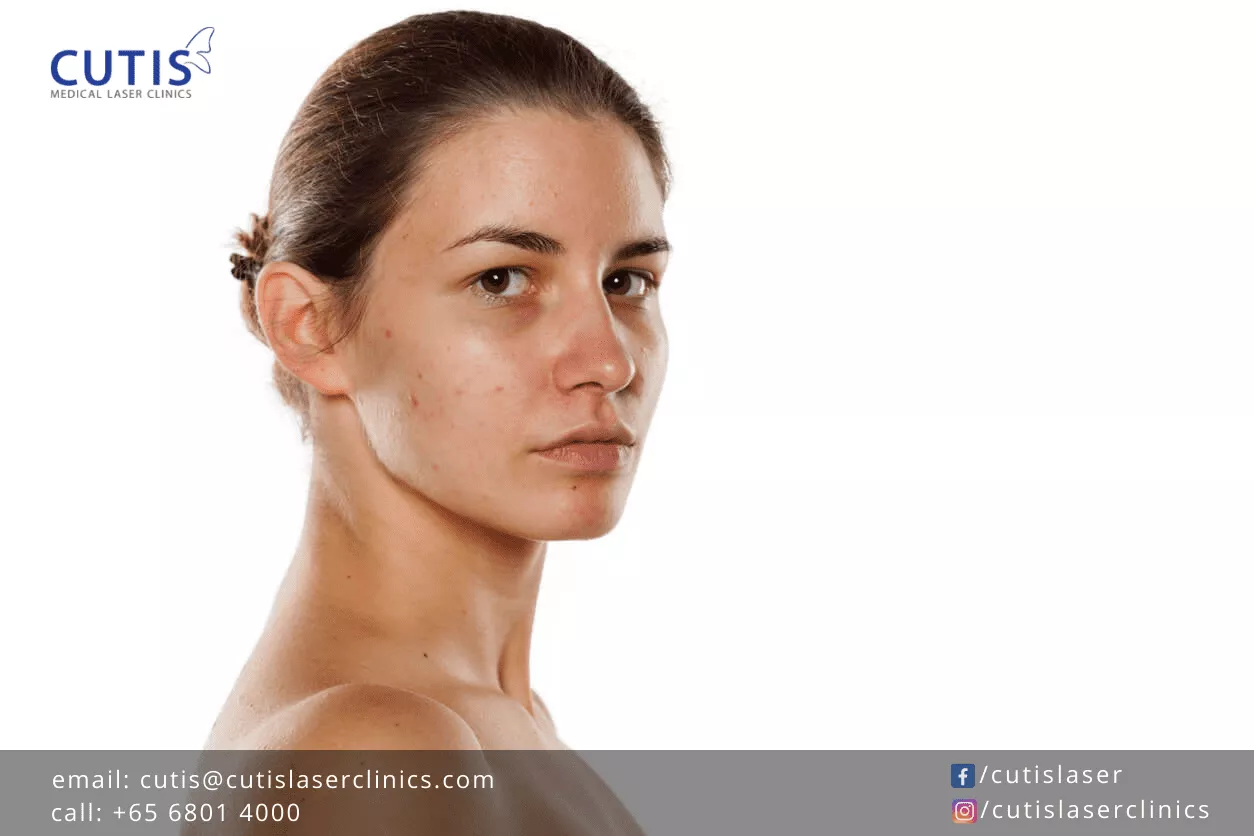If you’ve got dark spots or pigmentation, you probably know that sun exposure is a major culprit. It doesn’t just contribute to the appearance of skin discoloration, but also makes existing spots worse or darker. Sun exposure, furthermore, can lead to premature signs of aging such as fine lines and wrinkles.

There are, however, other habits and factors that can cause an increase in melanin of pigment production. Here are 5 other causes of pigmentation you may not know about.
1. Cooking
Exposure to heat can stimulate the melanocytes or the pigment cells in the body. And as cooking generates excess heat, it can aggravate said cells, resulting in darkening or pigmentation. This is especially true if your skin is constantly exposed to high flames while cooking or prone to certain types of pigmentation.
Avoiding cooking isn’t viable, so it is best to apply protective cream in exposed areas while doing so. It is also advisable to avoid going to the sauna or steam room if you’re prone to pigmentation. Another way to protect your skin in the kitchen is to moisturize daily to fight dryness caused by constant hand washing.
2. Hormonal fluctuations
An imbalance of estrogen and progesterone can also contribute to dark patches in the skin. This can stimulate extra melanin production, resulting in pigmentation and making your existing spots darker than usual. This is why if you’re not getting good results from the lightening products you’re using, you might want to get your hormones checked.
Hormonal fluctuation is said to trigger melasma, a common type of hyperpigmentation that presents itself in brownish or grayish patches on the face. This is common during pregnancy (which is why it is also called the “mask of pregnancy”) and can be due to significant increases in estrogen and progesterone and changes in other hormones.
For further reading: Your Common Questions About Melasma Answered
3. Stress
Acne and eczema flare-ups aren’t the only ones that can happen with chronic stress. It can also trigger or worsen hyperpigmentation, resulting in a dull complexion. This is because when stressed, the body releases adrenocorticotropic hormone (ACTH), which is known to trigger melanogenesis, the process of producing pigment cells.
It is also worth noting that cortisol (stress hormones) causes an immune response that results in inflammation and sensitivity. It can cause red and irritated skin, more sebum production and breakouts, as well as more stress and other skin conditions.
4. Bad or low-quality skin care products
Some skin care formulations contain harmful ingredients that can irritate the skin and cause scarring or discoloration. Oxybenzone, a sunscreen ingredient that filters UV rays, for instance, may mimic the effects of estrogen and incite hormonal imbalance. And as previously mentioned, this can make you more vulnerable to pigmentation.
Always read labels and stay from unbranded products or those that don’t have a list of ingredients. Be wary of extremely cheap or bargain products that promise too-good-to-true results. Read reviews or ask your doctor for recommendations. If you’re looking for medical-grade skincare formulations, check out drsylviaskincare.com.
5. Smoking
Apart from damaging nearly every organ in your body, smoking also accelerates aging and causes pigmentation. This habit also encourages the formation of melanocytes, which can then lead to dark spots. A dull and pale complexion is also common among smokers due to the restricted blood flow that deprives the skin of oxygen and nutrients.
You should also know that smoking damages collagen and elastin, contributing to sagging skin and premature wrinkling. It can also cause increased oxidative stress that may contribute to age-related dark spots.
What can help fade or improve dark spots?
At Cutis, we have several treatments that can fade different types of pigmentation and brighten your complexion.
1. Meso-Peel
If you’re looking for an in-office peel that can address pigmentation concerns and other signs of aging, Meso-Peel is worth considering. This combines microneedling and Über Pro Peel, a professional peel that is designed to enhance skin needling procedures, but also works well as a stand-alone peel.
Meso-Peel combines two safe and effective skin technologies to brighten your skin and give you a more glowing complexion. Professional microneedling causes micro-trauma that creates fine fractional channels and helps stimulate collagen growth. Über Pro Peel, on the other hand, refreshes the skin’s top layer to fade pigmentation.
Benefits include:
- Lightens dark spots and pigmentation
- Promotes cellular turnover
- Reduces scars, fine lines, and wrinkles
- Improves skin tone and texture
For further reading:Über Pro Peel: The Chemical Peel Designed for Microneedling
2. Dermamelan
For effectively fading stubborn pigmentation and preventing its recurrence, Dermamelan can help. This medical-grade depigmenting treatment features a double corrective and regulatory action that can lighten pigmentation and regulate melanin overproduction to prevent spots reformation.
What Dermamelan does is paralyze melanin production without damaging the pigment-producing cells or melanocytes. This only means that there is no risk of blemishes or white spots appearing. It involves two phases:
- In-clinic phase – the application of two masks with an intensive depigmentation action, which you will need to go home with.
- At-home phase – home guideline that involves the removal of the masks after four hours and using the complimentary products provided for four months.
It can treat different types of hyperpigmentation including:
- Sunspots or solar lentigines
- Melasma
- Freckles
- Post-inflammatory hyperpigmentation (PIH)
- Blotchy skin
You may see changes within a week, but you will need to continue the treatment for four months to regulate or keep the overproduction of melanin under control.
3. VI Peel Precision Plus
Specifically designed for skin discoloration, VI Peel Precision Plus combats pigmentation using a dual booster: Lighter Booster and Fast Acting Brightening Booster. It features a powerhouse formula that inhibits melanogenesis or the process of producing pigment by melanocytes.
VI Peel Precision Plus is specifically formulated for treating:
- Sun damage
- Melasma
- Post-inflammatory hyperpigmentation (PIH)
Benefits include:
- Penetrates damaged skin areas
- Evens skin tone and texture
- Promotes rapid cell turnover
- Brightens areas with discoloration and hyperpigmentation
Schedule a consultation
Don’t let pigmentation concerns wear your confidence down. Contact Cutis Medical Laser Clinics in Singapore and schedule a consultation with one of our aesthetic doctors to learn more about our chemical peels for pigmentation and other available treatment options.
- If you would like to be an informed patient, please contact us at +65-6801-4000 or
hello@cutislaserclinics.com. - Cutis Medical Laser Clinics, 9 Scotts Road Pacific Plaza, Scotts Medical Center #08-07, Singapore – 228210
+65-6801-4000 - hello@cutislaserclinics.com
